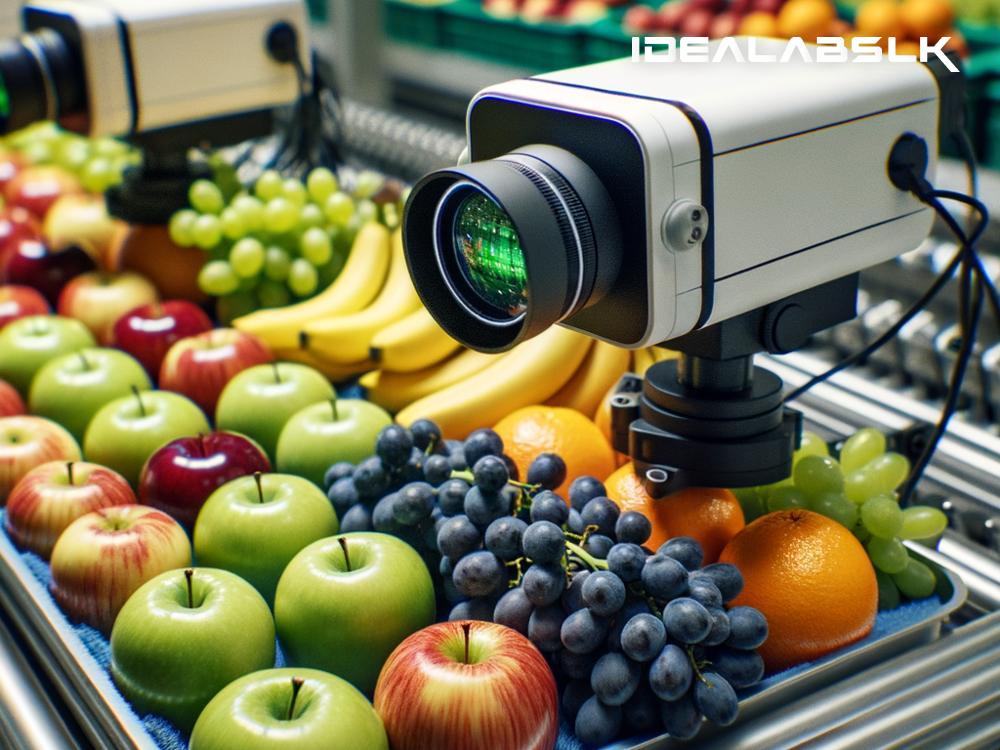AI: Revolutionizing Automated Quality Inspection in Food Production
Introduction
The food industry is a vital part of our lives, providing the sustenance we need every day. However, ensuring the food that reaches our tables is of high quality and safe to eat is a paramount concern. Traditionally, quality inspection in food production has been a time-consuming task, relying heavily on human inspectors. While effective, human inspection can be slow and sometimes inconsistent. Enter Artificial Intelligence (AI) – a game-changer in automating and enhancing quality inspection in food production, making the process faster, more reliable, and more efficient.
What is AI?
Artificial Intelligence, in simple terms, is the ability of a computer or a machine to think, learn, and make decisions like a human. AI can analyze large amounts of data quickly, learn from patterns, and perform tasks without getting tired or making mistakes due to fatigue. It's like having a super-smart robot that can do specific tasks usually requiring human intelligence.
AI in Food Production
In food production, quality control is crucial. Everything from the size and shape of fruit to the presence of foreign objects in a packaged meal needs checking. This is where AI comes into play. By implementing AI in automated quality inspection systems, food producers can dramatically improve the efficiency and accuracy of their quality assurance processes.
How Does It Work?
Imagine a conveyor belt in a factory with tomatoes rolling down it. An AI-powered camera is set up to take pictures of each tomato. The AI then analyzes these pictures in real time, checking for blemishes, size, and color. If a tomato doesn't meet the set quality standards, the AI system can direct a machine to remove it from the line. All of this happens swiftly, ensuring only the best tomatoes are packed and sent to stores.
Benefits of AI for Automated Quality Inspection
1. Increased Efficiency
AI can process and analyze data much faster than a human can. This means that food producers can inspect products at a higher speed, increasing the volume of food that can be checked and cleared for distribution.
2. Consistency
One of the biggest challenges with manual inspections is ensuring consistency. Different inspectors may have slightly different standards, and even the same inspector can vary in their judgment due to tiredness or distraction. AI eliminates this problem by consistently applying the same standards across all products.
3. Reducing Waste
By accurately detecting only the products that fail to meet quality standards, AI helps in reducing waste. In contrast, manual checks might err on the side of caution and discard more products than necessary.
4. Enhanced Food Safety
AI systems can quickly detect contaminants and foreign objects that are hard for the human eye to catch. This significantly reduces the risk of foodborne illnesses and ensures that the highest safety standards are maintained.
5. Cost Savings
While the initial setup for AI in quality inspection might require significant investment, it pays off in the long run. Reduced waste, improved efficiency, and decreased reliance on manual labor can lead to substantial cost savings for food producers.
Challenges and Considerations
Despite its advantages, integrating AI into food production isn't without its challenges. The upfront cost can be high, and there's a need for technical expertise to operate and maintain AI systems. Additionally, there's the question of what happens to jobs traditionally done by humans. The answer might lie in retraining workers for more technical roles, overseeing the AI systems instead of being replaced by them.
The Future Is Now
AI for automated quality inspection in food production isn't just a futuristic dream – it's happening now. Companies around the world are adopting AI solutions to ensure the quality of their products, streamline operations, and meet the increasing demands of consumers for safe and high-quality food. As technology continues to advance, the role of AI in food safety and quality assurance will only grow, revolutionizing the industry in ways we're just beginning to imagine.
Conclusion
Incorporating AI into quality inspection processes represents a significant leap forward for the food production industry. It offers a host of benefits, from increased efficiency and consistency to enhanced food safety. While challenges exist, the potential rewards make exploring AI-driven solutions a tantalizing prospect for food producers aiming to stay at the forefront of quality and innovation. As we move further into the 21st century, embracing AI in food production is not just smart; it's essential for feeding the world safely and sustainably.

